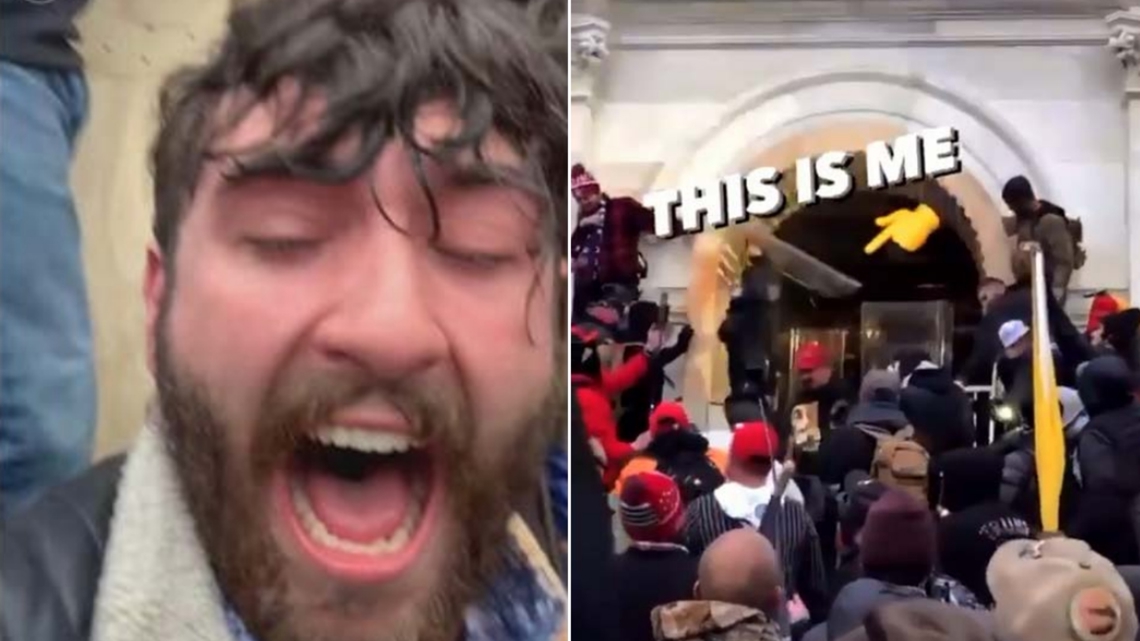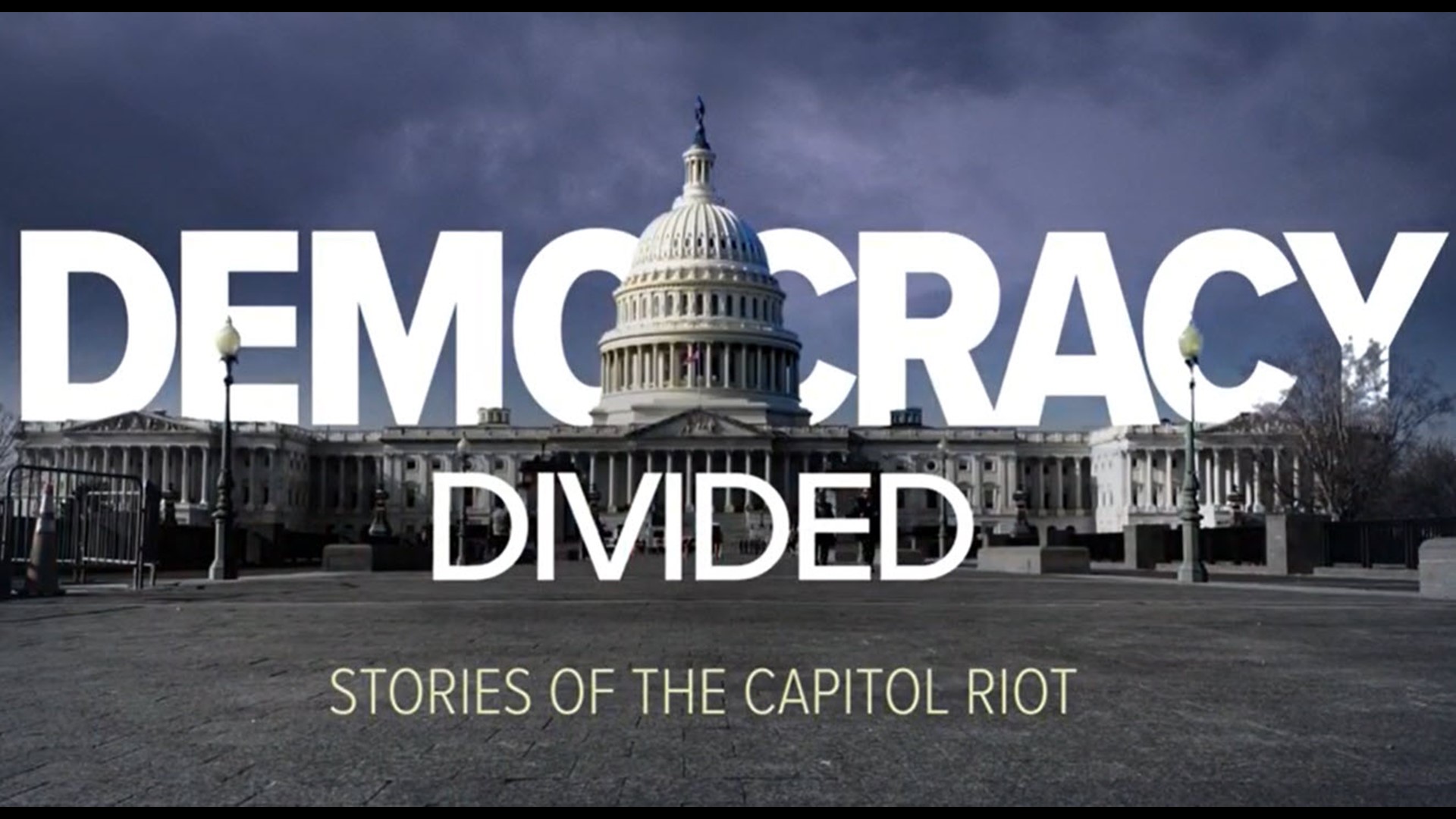WASHINGTON — A federal judge appointed to the bench by former President Donald Trump said Tuesday it would be “beyond frustrating” if blanket pardons were issued for Jan. 6 defendants, even as he agreed to a two-month delay that could mean a defendant accused of assaulting multiple officers never sees trial.
U.S. District Judge Carl Nichols reluctantly agreed to continue the trial of Edward Jacob Lang until next year following partially-sealed discussions about pending issues in his case. Lang, who is representing himself alongside co-counsel in an unusual hybrid defense, has indicated he intends to call several other Jan. 6 defendants as witnesses at trial. In a notice to the court earlier this month, prosecutors warned some may have potential conflicts regarding self-incrimination that would need to be resolved first. Nichols said Tuesday those issues drove his decision to grant the continuance, although he acknowledged the lack of certainty about what will happen to Jan. 6 cases once Trump resumes office.
“We’ll have a collateral benefit, I suppose, of knowing for sure that if we go to trial the Department of Justice will be able to assure us we’re going to sentencing,” Nichols said.


Judges overseeing Jan. 6 cases have been flooded with motions to delay proceedings in their cases since Trump was projected to win reelection earlier this month. So far, judges, including Nichols, have largely denied those motions. Last week, U.S. District Judge Rudolph Contreras, an Obama appointee, agreed to delay the trial of a Kansas man until February due in part to the possibility of presidential pardons.
The Justice Department is widely expected to immediately stop filing new cases related to the Capitol riot after the inauguration. It’s less certain whether the DOJ will seek to dismiss pending cases, including those awaiting sentencing. Much of that may depend upon who replaces Attorney General Merrick Garland at the head of the DOJ. Trump has tapped Florida Rep. Matt Gaetz (R), a staunch loyalist and vocal critic of the Jan. 6 prosecutions, to assume the role as the country’s chief law enforcement officer, although Gaetz may face a contentious confirmation process due to a former federal sex trafficking inquiry and a related investigation by the House Ethics Committee.
Trump has offered no specifics about his pardon plans. As recently as September, Trump said during a rally in Wisconsin that he planned to “rapidly review the cases of every political prisoner unjustly victimized by the Harris regime.” He told Time Magazine during an interview in April that he would “absolutely” consider pardoning every Jan. 6 defendant, although moments later said he would look differently at defendants who were “evil and bad.”
ALSO READ | Expecting pardon from Trump, libertarian writer pleads guilty to all counts in Capitol riot case
Nichols, whose decision to dismiss an Enron-era obstruction statute used in hundreds of Jan. 6 cases – including Lang’s – was ultimately upheld by the U.S. Supreme Court earlier this year, opined from the bench Tuesday against an indiscriminate approach to pardons.
“It would be beyond frustrating and disappointing if there were blanket pardons for Jan. 6 defendants or anything close,” he said.
Nichols’ comment came just before agreeing to delay Lang’s trial and after hours of grappling with the question of what that could mean for the case. He repeatedly pressed Assistant U.S. Attorney Karen Rochlin on whether she could assure him the effort and expenditure of a two-week jury trial wouldn’t be moot as of Jan. 20.
“I realize that question is an exceedingly complicated and probably unanswerable one,” Nichols said.
Rochlin ultimately said she couldn’t make any promises about the department’s stance after inauguration day.
“It is theoretically possible that a government official will make a decision, that I will have to obey, to dismiss the case before sentencing,” Rochlin said. “It is equally possible, perhaps more probable, that they will not.”
Rochlin likened Lang’s and other Jan. 6 defendants’ claims about inevitable presidential pardons to a hypothetical tornado or hurricane that might be going on at that very moment outside the windowless courtroom. There was, she said, no way to know, and argued the court should proceed under regular order.
Lang, who was given the unusual opportunity to address the court himself due to his hybrid defense arrangement, latched on to Rochlin’s tornado analogy.
“There is a tornado and a hurricane outside this building right now and his name is Donald Trump,” Lang said. “And he’s sweeping through the Department of Justice.”
Lang, 28, of New York, faces one of the lengthiest indictments in any Jan. 6 case: 13 counts, including eight separate counts of assaulting police. Three of those counts include a dangerous weapon enhancement alleging Lang repeatedly attacked officers with a baseball bat during a furious, hours-long melee between the mob and police who were attempting to prevent them from entering the U.S. Capitol through the Lower West Terrace Tunnel.
Lang, who investigators say bragged on social media that he was “the leader of liberty” on Jan. 6 and said in a video posted on social media that “guns” were next, was arrested on Jan. 15, 2021, among the first wave of defendants to be charged. He has remained in pretrial custody for the nearly four years since his arrest as his case sat in stasis amid appeals of Nichols’ decision dismissing the obstruction count. The U.S. Supreme Court’s ruling in July allowing Lang’s case to finally proceed.
Absent a notice of dismissal from the DOJ or a presidential pardon, Nichols said Lang’s trial would begin either the last week of January or the beginning of February. Changes at the top of the DOJ may depend upon the speed at which the U.S. Senate acts on Trump’s cabinet nominations. During his first term, the Senate Judiciary Committee began hearings on then-Sen. Jeff Sessions’ nomination 10 days prior to the inauguration. Sessions was confirmed as attorney general on Feb. 8, 2017, and began overseeing the replacement of U.S. attorneys around the country a month later. Jessie Liu, Trump’s pick to take over the U.S. Attorney’s Office for the District of Columbia which would later oversee all of the Jan. 6 prosecutions, was nominated as U.S. Attorney in June 2017 and confirmed by the Senate in September of that year.

